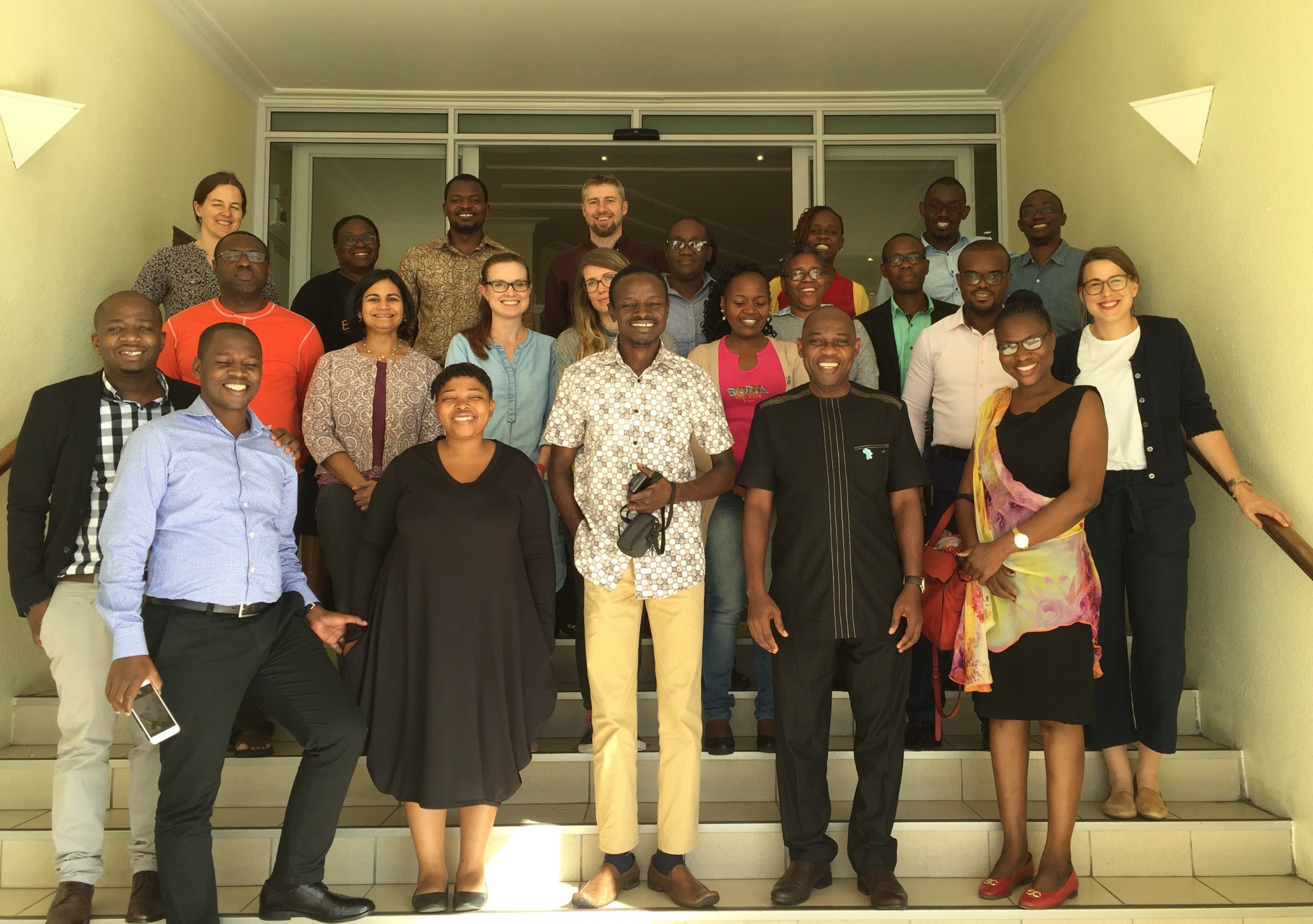As part of the LIRA 2030 programme’s commitment to support grants awarded to 11 collaborative research projects across Africa in 2018, a group of 22 researchers took part in a week-long set of activities before and during a 3-day scientific conference organized by Future Earth from 9-11 May in Port Elizabeth, South Africa.

ICSU and the International Social Science Council co-organized two training events in advance of the “Seedbeds of Transformation” conference. The events were designed to ensure that project teams have the necessary skills and capacity for inter- and trans-disciplinary research during the 2-year cycle of the projects. One of the events was for project co-investigators, and the other one was a Project Coaching workshop for project teams.
Training covered a wide range of topics, such as theories, methods and examples of trans-disciplinary research; stakeholder engagement; theories of change, development of project plans, publishing trans-disciplinary research and financial management.
“I effectively learned in two compressed days what I usually learn in more than a month,” said Blaise Nguendo-Yongsi, a researcher in health geography and spatial epidemiology from the IFORD-University of Yaounde II-Cameroon.
“The trainers were able to take the complex and make it simple,” he said, adding: “What I liked best were the useful tips to select stakeholders and keep them close and motivated during a TD project.”
Following the training events, a group of LIRA 2030 researchers attended the “Seedbeds of Transformation” conference. Designed as a participatory platform to explore what the Sustainable Development Goals mean in the social, political and cultural contexts of Africa, the conference was highly complementary to the LIRA 2030 research focus and grantees took part in a wide range of activities there.
LIRA 2030 researchers held a joint session with ICLEI to discuss implementation of SDG 11 in Africa. The programme was highlighted during a session on “How can Future Earth research networks effectively contribute to implementation of SDGs in Africa”.
A communications workshop was held on the final day of the conference with a specific focus on science communication tools (including policy briefs) and how to improve engagement with policymakers. The session was designed to help early career scientists to understand the power of storytelling and to think through strategies for sustaining excitement and engagement among policymakers.
“The conference proved to be a testing lab in bridging ideas on the interface between science, policy and practice. I am eager to see how the soil will receive the first fruits of the seeds planted during these three days, delivering the anticipated fruits of change,” said Kevin Eze, a researcher from the University of the Sahel.
These activities were made possible thanks to the generous support provided by the Swedish International Development Agency (Sida) and the Robert Bosch Foundation.